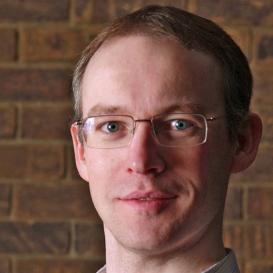Computer Science
Fact File
Computer Science extends from the physical principles upon which digital computers work to the mathematical understanding of the semantics of computation.
In Cambridge, Computer Science covers the principles of programming, operating systems, computer networks, artificial intelligence and numerous other topics.
The study of Computer Science is also concerned with understanding the theoretical basis of the subject. In consequence, the course is designed to provide not only advanced practical experience but also to give an understanding of fundamental principles which will outlast today's technology.
The first year of the standard Cambridge Computer Science course provides a thorough grounding in two programming languages (OCaML and Java), Discrete Mathematics, Software Design, and Machine Learning.
In the first year, students also study a Mathematics paper for one quarter of their time.
In the second year; a wider range of topics is covered. A number of major exercises are set and assessed; these include a Group Project where undergraduates are given an opportunity to work in very much the same way as they would in an enlightened software house.
In the third year, a number of advanced applications are covered and a substantial Project is undertaken which culminates in the writing of a dissertation.
In terms of teaching arrangements, first-year Computer Science students attend 12 one-hour lectures each week and undertake about 6 hours of formal practical work. Typically they will have four College Supervisions each week in addition. Most students undertake a good deal of informal practical work as well.
The pattern continues in the second and third years but the amount of formal practical work decreases. By contrast, the amount of informal practical work, including project work, increases.
Further information on the course content can be seen here, on the Computer Laboratory webpage.
Cambridge Computer Sciences graduates are currently in great demand. A good many have an entrepreneurial bent and a fair proportion of the local science-based industries were founded by our graduates. A number go into academic research and others find their way into the City.
Magdalene normally admits two to four undergraduates each year to read Computer Science, and there are often 10 or more applicants per place.
We encourage applicants from all types of school and college background and although the information about offers given above indicates a minimum requirement, each candidate is looked at in the light of his or her individual circumstances.
Recommended Reading
Academic study of Computer Science relies on mathematical techniques to formulate and analyse problems. An elegantly written presentation of practical applications (some of them specifically related to programming computers) is:
Tom Korner: The pleasures of counting, Cambridge University Press 1996, ISBN 0-521-56823-4.
It will also help to pursue recreational mathematics in the form of games and puzzles to keep your skills tuned. Indeed, the exercises in Korner's book probably count as recreational mathematics.
The main prerequisite for Computer Scientists is to have a good A-level qualification in Mathematics, alongside Further Mathematics if it is offered at an applicant’s school. Physical science subjects such as Physics or Chemistry are also desirable. There is no requirement to have Computer Science at A-level and an A-level in Information and Communications Technology is not as useful as the subjects mentioned above.
A sensible plan is to take Mathematics, Further Mathematics, a physical science and one further subject (a second science, a modern or classical language, or a mathematically-based technological subject) in Year 12, then to take three of these through to A-level and to supplement them with a further AS-level (or continue the fourth to A-level) in Year 13. However, we recognise that different schools have different policies on these matters and we will not penalise students who are not able to follow this plan because of a school policy.
The minimum conditional offer level for applicants taking A-levels is A*A*A. In general A-level subjects should include Mathematics, Further Mathematics and normally a physical science (eg Physics or Electronics). An A* in A-level (and IB equivalent) Mathematics or Further Mathematics is essential. Applicants are encouraged to take the Advanced Mathematics Support Programme, particularly if their school is unable to support teaching of Further Maths to A-level. Whilst offers will take into account personal circumstances, we strongly encourage applicants to pursue Maths to the highest level possible and to show a strong interest in mathematical/physical sciences.
Minimum offer level grades in the IB are 42 points overall, with 7,7,6 at Higher Level.
IB applicants starting the new IB Mathematics syllabus are expected to take IB Higher Level 'Analysis and Approaches' for any course where Mathematics is a requirement. If this option is not available at your school, please contact the College for further advice and guidance.
Interviews and Written Assessment
Applicants will also need to take a written assessment. The assessment for Computer Science, the TMUA, is a pre-registration required assessment. This means that you will have to register to sit the assessment at an assessment centre near to you. Registration for the pre-registration required assessment is separate from your UCAS application and it is essential that you are registered by your centre before the deadline, which is 16 September 2024. See the University Undergraduate Admissions website for further information about registering for the assessment and more details about the format of the assessment.
Please note that your performance in the written assessment will not be considered in isolation, but will be taken into account alongside all the other elements of your application.
Computer Science applicants who are invited to come to Magdalene for admissions interviews will usually have two subject interviews, each lasting normally about 20-25 minutes. The subject interviewers will not assume great computing expertise. Very much more interest will be taken in signs of mathematical aptitude and enthusiasm for problem solving. One or two mathematical problems (which may be obliquely relevant to Computer Science) will be presented during the interview.

